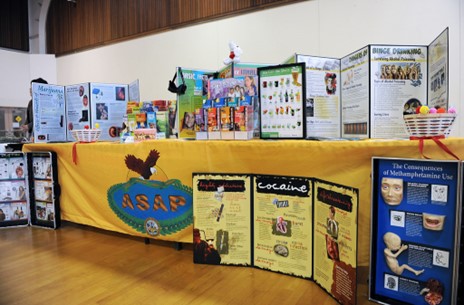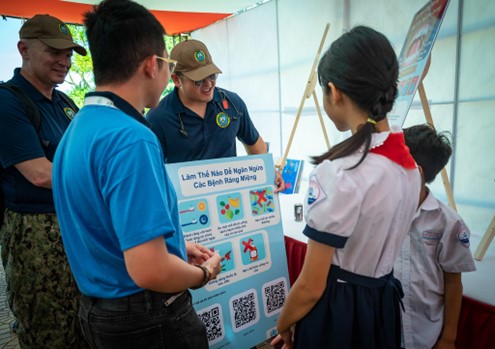Public health initiatives aimed at education today’s youth plays a crucial role in promoting lifelong wellness habits and empowering young individuals to make informed health decisions. Teen-focused health fairs serve as dynamic platforms where adolescents can learn about various aspects of health in an interactive and educational environment. In the following article, Sushil Gupta of Woodbridge delves into the significance of these health fairs, their key components, and how they contribute to fostering a healthier population.
Understanding Teen Health Needs
Adolescence is a pivotal stage of development characterized by rapid physical, emotional, and social changes. It’s a time when habits and behaviors formed can significantly impact long-term health outcomes. Teenagers often face unique health challenges such as:
- Mental Health: Issues like stress, anxiety, and depression are increasingly prevalent among adolescents.
- Nutrition and Physical Activity: Establishing healthy eating habits and maintaining regular physical activity are crucial for growth and development.
- Substance Use: Prevention efforts targeting tobacco, alcohol, and drug use are essential during these formative years.
- Sexual Health: Education on safe practices, contraception, and STI prevention is vital for promoting responsible behavior.
The Role of Teen-Focused Health Fairs
Teen-focused health fairs provide a holistic approach to addressing these health needs by offering:
Education and Awareness: Workshops, seminars, and interactive sessions educate teens about various health topics, including nutrition, mental health, sexual health, and substance abuse prevention. Experts and healthcare professionals deliver evidence-based information in an accessible manner.
Screenings and Assessments: Health fairs often include screenings for blood pressure, cholesterol levels, BMI (Body Mass Index), and vision, providing teens with valuable insights into their current health status and risk factors.
Skill-Building Activities: Hands-on activities like healthy cooking demonstrations, fitness challenges, and stress management workshops empower teens with practical skills to adopt healthier lifestyles.
Community Resources: Exhibitors from local health organizations, clinics, and advocacy groups offer information on available services, support networks, and resources for ongoing health management.

Components of a Successful Health Fair
A well-executed teen-focused health fair incorporates several key components to maximize engagement and impact:
- Interactive Booths: Booths featuring games, quizzes, and simulations related to health topics encourage active participation and reinforce learning.
- Peer Education: Peer-led sessions and youth panels create a relatable environment where teens can discuss health issues openly and learn from their peers.
- Guest Speakers: Inviting motivational speakers, athletes, or local celebrities to share personal stories and insights can inspire teens to prioritize health and wellness.
- Incentives and Giveaways: Providing incentives such as healthy snacks, water bottles, or educational materials encourages attendance and participation.
Promoting Long-Term Health Literacy
The benefits of teen-focused health fairs extend beyond the event itself. By equipping young people with knowledge and skills early on, these initiatives promote:
Preventive Health Practices: Encouraging regular physical activity, balanced nutrition, and stress management techniques reduces the risk of chronic diseases later in life.
Health Advocacy: Empowering teens to advocate for their health needs and make informed decisions about healthcare services and resources available to them.
Community Engagement: Fostering a sense of community responsibility and encouraging teens to become ambassadors for health promotion within their schools and neighborhoods.

Successful Implementation
For instance, in communities across the United States, organizations like local health departments, schools, and youth organizations collaborate to host annual health fairs tailored specifically for teenagers. These events feature workshops on topics ranging from mental health resilience to healthy relationships, attracting hundreds of adolescents eager to learn and engage.
Conclusion
Health fairs play a vital role in shaping the health behaviors and attitudes of young individuals, setting the stage for a lifetime of well-being. By providing education, screenings, and interactive experiences, these events empower teenagers to take charge of their health and make informed choices. As healthcare professionals and community advocates, it is our collective responsibility to continue investing in initiatives that promote youth health and inspire future generations to lead healthier lives. Together, we can create lasting impacts on teen health outcomes and build healthier communities for years to come.
